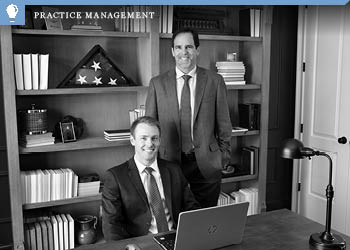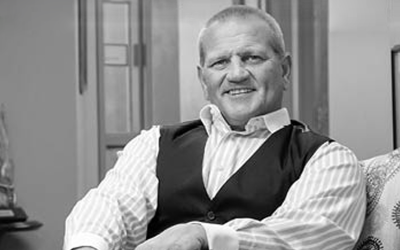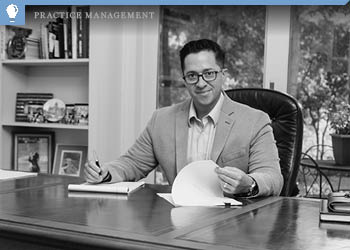Edgardo Castro • Fort Lauderdale, FL
Aragon Capital LLC
One important aspect of my business model is my emphasis on clients who are part of the Florida Retirement System (FRS). The majority are teachers, but I also work with police officers and city workers, predominantly in Miami-Dade County.
I tailor my planning approach to fit each client and look to provide financial guidance that addresses all aspects of his or her financial life. If I do not have deep experience in any given area, I will help clients find a resource that will serve them well. The primary goal of this type of client is to see steady growth in their retirement assets while minimizing risk to the degree possible. As I tell clients, I want to make sure they are being well compensated for any risk they are taking.
My planning process remains basically the same for all FRS employees, although there are significant plan differences depending on the type of employer a client works for. Essentially, all FRS participants are initially offered the choice of a defined benefit/pension plan or a defined contribution/investment plan. They also have one opportunity to change their election during their career with an FRS employer. Many can also choose to take part in the deferred retirement option program, or DROP. I am knowledgeable about a range of retirement plans, including 401(a) plans, the primary investment plan for FRS, as well as 403(b) and 457 plans.

Helping clients understand the specific features of their plan is one major way I add value. We often get on the phone together with FRS to review their plan benefits. Part of my role is helping them look at all of the available options and make decisions in line with their attitude around risk, their future distribution preferences and tax exposure, as well as having their beneficiary choices aligned with their objectives. Most of these clients have never worked with a financial advisor, so I place a great deal of emphasis on education. I want to help clients understand broad investment principles and where their retirement plan fits within their overall financial picture. We look at the asset allocation choices available within their plan, which may entail life insurance, annuities, or various investment classes.
I tell new clients that my primary goal is to help them understand why their money behaves the way it does. If they have existing assets in the investment plan, no matter the size of the account, I’ll run a portfolio analysis and explain why the account has performed the way it has. We will have a discovery meeting so I can really get to know them, understand their risk tolerance, review their goals in a systematic fashion, and explain to them how it all ties in.
Most people are conditioned to think, “I am just going to set my investments up initially and not touch them. I may lose money over some periods but eventually my account will grow.” I do not think that is an appropriate approach for investors, and especially those who are getting close to their retirement age. I introduce them to the concept of managed money, where professional money managers can employ research, sophisticated models, and risk-managed strategies on behalf of the client. That is usually a real eye-opener for most people and, once they understand the basic principles, something they are very interested in. While there are no guarantees, I can say that tactical money management, at least for my clients, performed as it was intended to during the downturn in the first quarter of 2020. Overall, clients were very pleased to see that.
Active, tactical investment strategies have various tools to manage risk, including the ability to change portfolio allocations with changing market conditions; increase or decrease exposure to the overall market, sectors, or asset classes; or even move 100% to cash. The majority of my clients are conservative investors and are not looking to outperform the S&P 500. When the market’s doing well, they want to participate in those gains, but they are very concerned about mitigating market risk. The important thing is that their investment plan is staying on track over the years. A risk-oriented investment approach fits both the attitudes of my clients and the objectives of their long-term plans.
Key takeaways
- Financial education is key to developing Florida Retirement System (FRS) clients who likely have not worked with a financial advisor before.
- FRS employees value guidance in helping them make decisions in line with their risk profile, distribution preferences and tax exposure, and beneficiary objectives.
- A risk-managed investment approach fits the attitudes of FRS clients and the goals of their long-term plans.
Disclosure: Aragon Capital LLC is an independent registered investment advisory (RIA) firm located in the South Florida area. The opinions in this material are for general information only and are not intended to provide specific advice or recommendations for any individual. Investing involves risk, including loss of principal.
This article first published in Proactive Advisor Magazine on August 13, 2020, Volume 27, Issue 6.
Photography by Jennifer Jones
RECENT POSTS








